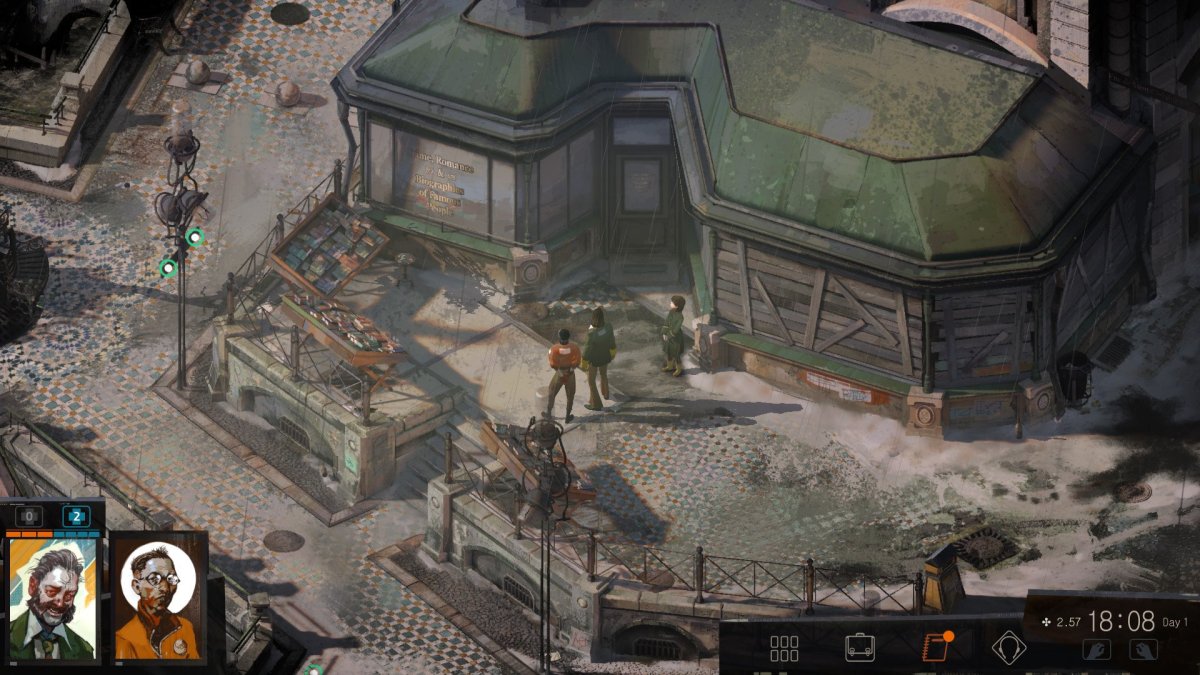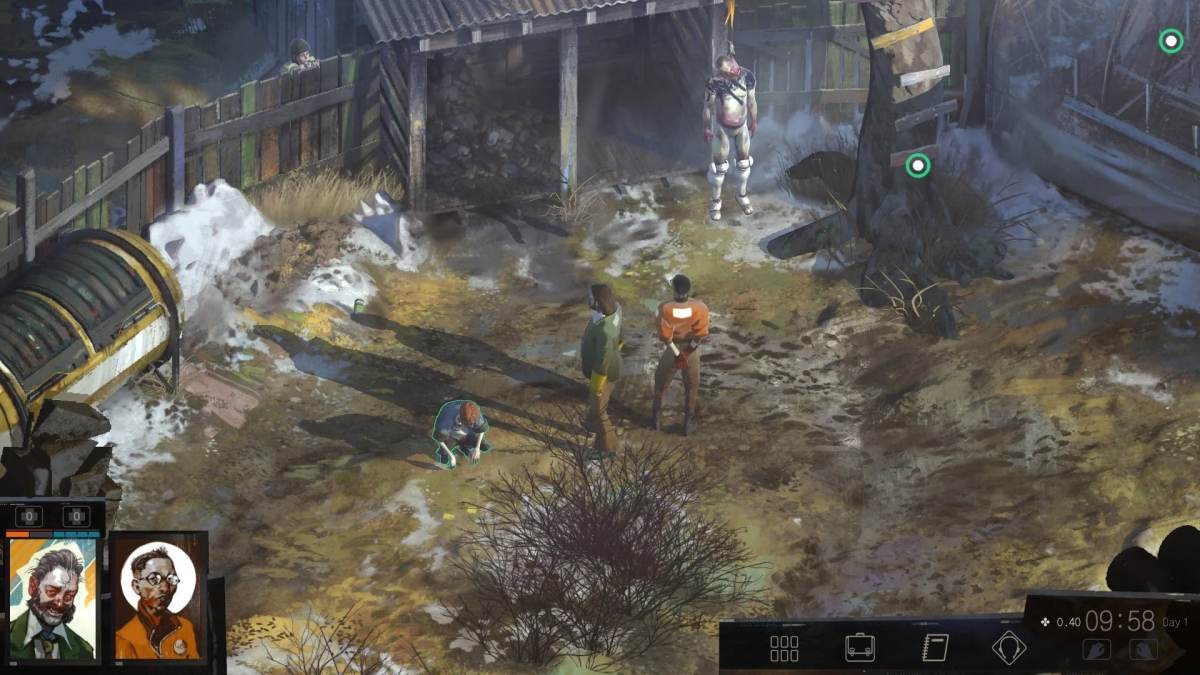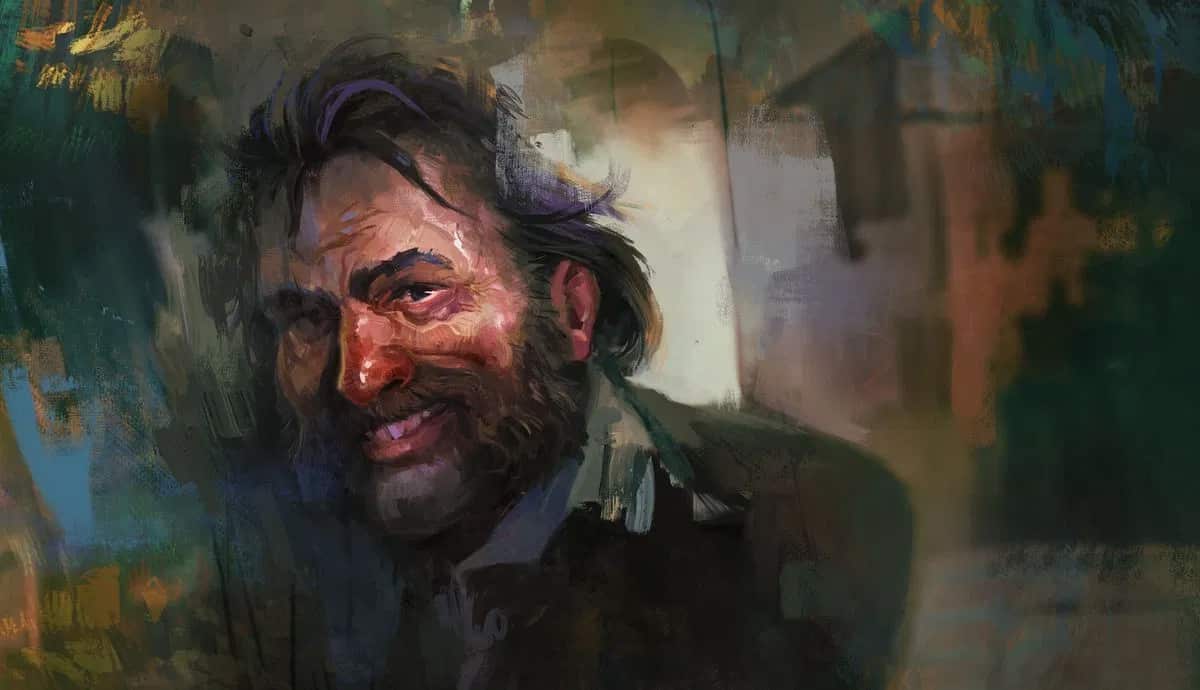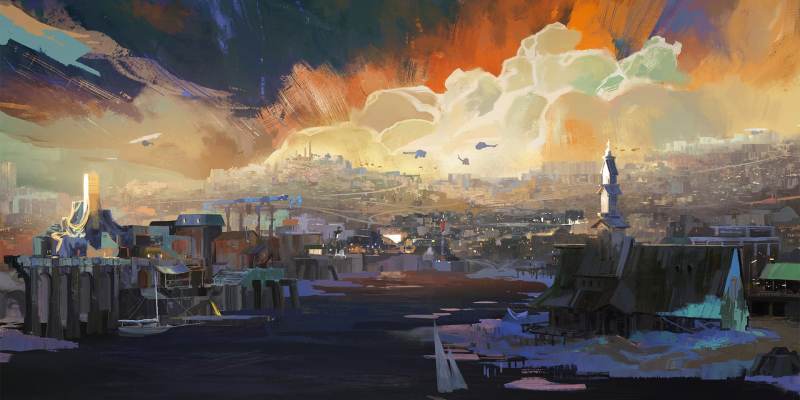Bloodshot eyes, a corpse-pale face, hair that looks like the butt of Dylan Moran’s joke about comb-overs, and late 1990s Russian market stall T-shirt and jeans – it looks I’ve decided to go fully method for this replay of ZA/UM’s hit Disco Elysium. I would say it’s an appropriate way to celebrate the imminent release of the Final Cut update, but I would feel an affinity with Disco’s protagonist even without the lockdown get-up.
No, I am not a disgraced alcoholic cop with amnesia and a misplaced gun (although it has been a particularly long lockdown here in the U.K.). But Harry Du Bois’ city of Revachol bears a strange kind of resemblance to many of the places from my childhood and adolescence. For me, as I’m sure for many others my age or older, Disco Elysium comes with an odd mix of nostalgia and melancholy.
I was born in Russia when it was still the Soviet Union. It collapsed when I was a few years old, and I vividly remember the post-collapse 1990s and early 2000s – the same, I imagine, as anyone who lived through that time in any country directly affected by the collapse. I remember the cynicism and disaffection born out of disappointment at a failed regime, or at the rapid privatization and the accompanying corruption, hyperinflation, and instability. I also remember the sudden influx of Western and Eastern products: cars, stereos, poorly dubbed VHS tapes, CDs sold with dubious-looking license stamps, video games, appliances, cigarettes, American fast food restaurants – the list goes on.

My overall impression of the period is a kind of wry melancholy. The wryness, perhaps as a coping mechanism, caused by the surge in imports and the impact that had on culture. The melancholy due to the fact that few could afford the fancy new goods or manage the upheavals brought on by the collapse. As the post-socialist crisis stretched on, it felt to me like we were forever caught between two time periods – not quite a failed state, but not quite a recovering one either.
Revachol is not in Russia. Revachol is not anywhere in our reality; it has its own 6,000-year history and a fantastical geography. And yet to me it deftly captures that feeling of wry melancholy, that sense of being stuck between time periods in a post-socialist crisis.
The fashion is a mix of styles from the last 70 years of our history. The technology is anything from cassette tape decks to advanced body armor to strange hybrids of old and new, like the Coupris Kineema police car – a modern engine inside something that resembles the early 1900s Ford Model T. The architecture is likewise impossible to pin down to a single style or time period. The church on the western side of the game map reminds me of the wood-carved Kizhi Pogost, while the Whirling-in-Rags hostel where Du Bois first wakes up is a modernist glass box – ugly and utilitarian.
It could be any time from our reality’s 1950s to the present day, with no sense of progress or change and nothing to distinguish one year lived here from another – something that is reflected in the game’s quests and many of its settings.

One of Du Bois’ first tasks in Disco Elysium, for example, is to remove a dead body hanging from a tree. It’s a trivial job in any other RPG, but here it can go on for hours and reach almost absurd levels of dark comedy: First Du Bois is unable to approach the body because of the smell. Later he is unable to get it down because he does not have the right tools, all the while being harassed by the locals and trying to stop some street punks from interfering with the crime scene. Eventually, under the guidance of his steady-hand partner, Du Bois performs an extensive, detailed, and bureaucratic post-mortem.
It stands out as one of the game’s many metaphors for Revachol: a bloated mess of a dead city that no one has the aptitude to cut loose or the energy to fix. There is enthusiasm only for Kafkaesque levels of bureaucracy and elaborate analysis.
Almost immediately after encountering the body, Du Bois finds himself in a queue of stationary traffic due to a dispute with the local trade union – another allegory for the city’s stagnation, but one that links to the game’s broader lore and context. Modern Revachol is the product of a socialist revolution to overthrow a decadent monarchy, followed by years of foreign intervention to introduce free market capitalism, capped off by economic boom and slump, and exacerbated by poorly managed city planning, privatization, and environmental issues.

Meanwhile, Du Bois plays with a degree of dry humor. Depending on the choices you make with the game’s 24 skills, 53 thoughts, and the myriad clothes and items, the jokes can range from good-natured slapstick gags all the way to the most irreverent and discomforting nihilism. But the humor is always there, papering over Du Bois’ crumbling personality and taking some of the edge off the city’s bitter hopelessness.
Disco Elysium works hard, in other words, to cultivate the feeling of wry melancholy I recall from after the collapse of the Soviet Union. The parallels with my childhood memories are not exact, but they don’t need to be. The ideas are more universal precisely because they are not confined to any particular real-world analogue, but tap into the mood of post-socialism in general.
It gives the nostalgia the game invokes a fever dream quality – it’s what I remember, but not quite, like a slightly distorted, compressed miniature that could be another’s memory of post-socialism just as easily as it is mine. No doubt those of us who remember post-socialism experienced it differently, some hurt or advantaged by it much more than others, but there is some piece of it that I imagine each of us can relate to in Disco Elysium.
